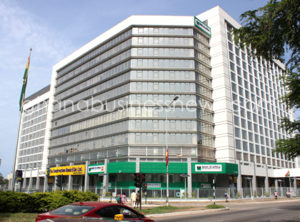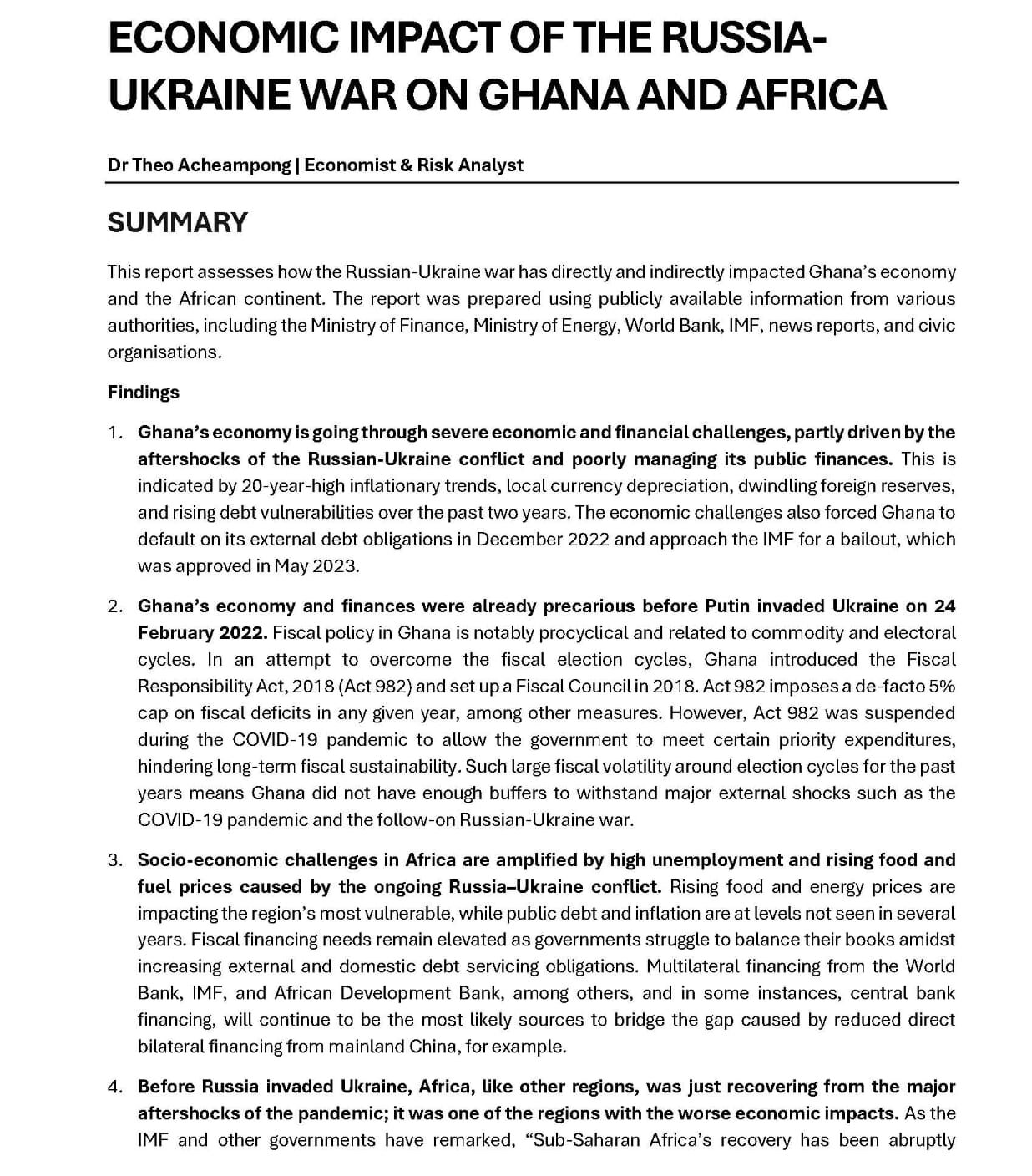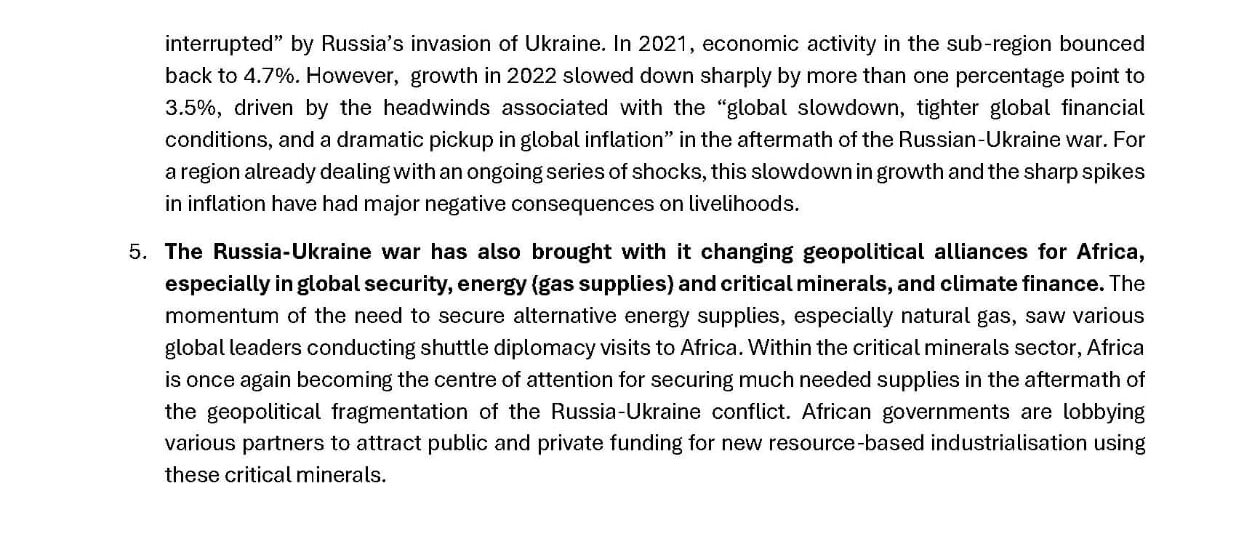How did the COVID-19 pandemic and Russia-Ukraine war affect Ghana and Africa?
 Between 2020 and 2021, Ghana’s total expenditure grew by 5.7% and 2.3% year-on-year as a share of GDP, while revenue, on the other hand, barely increased. About GH¢21.84 billion ($3.8 billion) was injected into the economy during the pandemic.
Between 2020 and 2021, Ghana’s total expenditure grew by 5.7% and 2.3% year-on-year as a share of GDP, while revenue, on the other hand, barely increased. About GH¢21.84 billion ($3.8 billion) was injected into the economy during the pandemic.
- Ghana’s economy is going through severe economic and financial challenges, partly driven by the aftershocks of the Russian-Ukraine conflict and poorly managing its public finances.
- Ghana’s economy and finances were already precarious before Putin invaded Ukraine on 24 February 2022. Ghana spent more than budgeted in the national budget during the COVID-19 pandemic from 2020 to 2021; we also shouldn’t forget that 2020 was an election year. For example, the finance ministry estimated that the 2020 overall fiscal deficit would rise from a targeted 4.7% to 7.8% of GDP.
 However, the actual deficit outturn was almost twice the amount at -13.80% of GDP in 2020 and -12.10% in 2021. Pandemic-related revenue shortfalls also accounted for this: a decline in import duties, petroleum receipts, and other tax revenue. The recent economic and financial crisis is largely attributable to this extra spending and revenue shortfall, which was, of course, compounded by the inflationary effects of the war.
However, the actual deficit outturn was almost twice the amount at -13.80% of GDP in 2020 and -12.10% in 2021. Pandemic-related revenue shortfalls also accounted for this: a decline in import duties, petroleum receipts, and other tax revenue. The recent economic and financial crisis is largely attributable to this extra spending and revenue shortfall, which was, of course, compounded by the inflationary effects of the war. - Between 2020 and 2021, Ghana’s total expenditure grew by 5.7% and 2.3% year-on-year as a share of GDP, while revenue, on the other hand, barely increased. About GH¢21.84 billion ($3.8 billion) was injected into the economy during the pandemic. These monies came from various sources, including the GOG Contingency Fund, World Bank Group Funds, the African Development Bank, the European Union, the Bank of Ghana COVID-19 Bonds, and other GoG funds.


